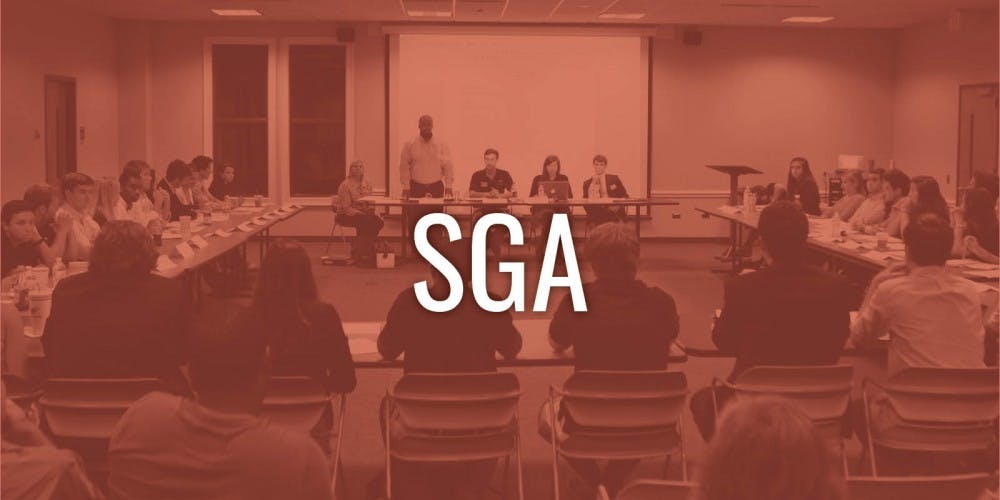Elon University’s Student Government Association Vice President of Communications William Wood and Senior Class President Lily Kays said they hope more people decide to run for SGA this year.
Last year, out of 18 races and 44 open positions, only two of them were contested. This year, there are 43 open positions. Kays said as the election chair, they are trying to get more people to run, without specifically asking people themself to avoid giving anyone an unfair advantage. On March 20, all candidates running will be announced.
“Part of the election chair's job is to remain pretty neutral in regards to getting people to run,” Kays said. “There's definitely bias if you are seeking out certain individuals, whether that's because of your social circles, their identity factors or etc.”
Wood said part of the strategy in getting people to run is tabling at Elon events, posting and resharing information on social media, and getting other senators within SGA to encourage others to run.
Kays also said voting is a main part of students becoming engaged with SGA. Kays said it is frustrating if students didn’t vote in elections and then chose to complain about what SGA is doing.
“I think that it's not that people don't have the ability to voice concerns if they don't vote, but it's a lot less valid if you're like, ‘OK well, you're so annoyed by it like did you vote for your senators?’ And they’re like, ‘Well no,’” Kays said. “If you choose not to exercise your right, there’s not much we can do.”
Kays and Wood both said something that SGA has worked on this year has been improving its transparency and accessibility. Wood said one of the more successful things SGA has done this year has been through the Student Outreach Committee and hosting conversational events.
“They really just post up at Oak House and engage with students,” Wood said. “Tabling in College Coffee has been another great way where we really encourage people to leave suggestions and discuss with us and just talk to them more about what student government does and how we serve the greater Elon community.”
Wood also said this has helped more people know what SGA is. Kays said if asked about what SGA does, they mention how it funds student organizations on campus, work on special projects and write legislation for the Elon community.
Wood said one piece of legislation that stood out to him this year was the resolution passed earlier this semester to commemorate the 1923 fire. While Kays said SGA has in the past done many meaningful projects for the university, there has not been any legislation this year that they feel has had a big impact on Elon.
Kays said part of the reason for this is because it is difficult for a majority of people in SGA to agree on something to pass and it is sometimes difficult to create something that has an actionable step. Kays said with the example of the recently announced 5.14% tuition and room and board increase for the 2023-2024 school year, it would be difficult to pass something that has any effect on students, even though this is something that some people within SGA feel strongly about.
“SGA is frustrated, a lot of members in the organization, like individuals, are frustrated with the experience that has happened with the tuition increase and the way that it's been slightly swept under the rug and having admin not comment on it the way that I think that we would like,” Kays said. “We can't request the university lower it back.”
Despite these frustrations, Wood said through recent small changes to SGA’s constitution, SGA has been working to remain an adaptive organization and is hoping that this translates to greater voter engagement.
Students can vote in SGA elections on PhoenixConnect March 27 through 28.


